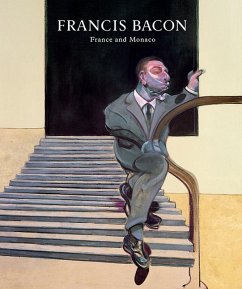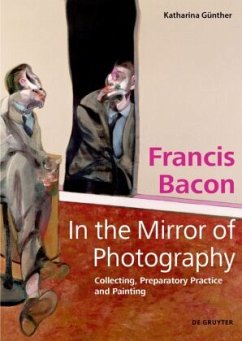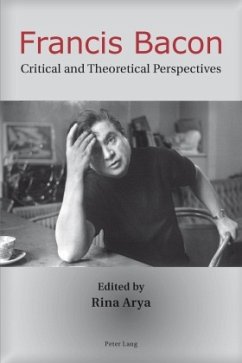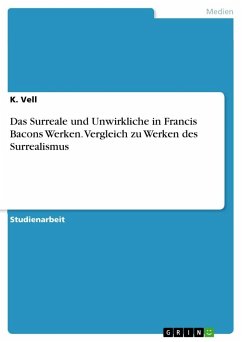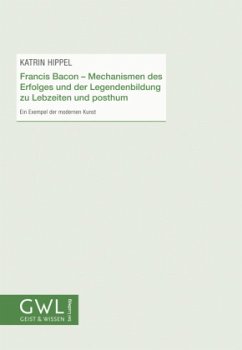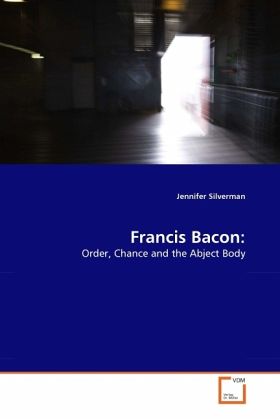
Francis Bacon:
Order, Chance and the Abject Body
Versandkostenfrei!
Versandfertig in 6-10 Tagen
32,99 €
inkl. MwSt.

PAYBACK Punkte
16 °P sammeln!
This examination looks at the work of British painter Francis Bacon (1909-1992) and his desire to portray sensation through the human figure. Bacon's use of the figure put him at odds with the art movements of his time. While he often vocalized his dislike of the Abstract Expressionists' work, he also utilized some of their techniques, relying on "free marks" to make his work more spontaneous. French philosopher Deleuze wrote extensively of Bacon's methods and use of "free marks" in his work Francis Bacon and the Logic of Sensation. In creating figures that teetered on the edge of abstraction,...
This examination looks at the work of British painter Francis Bacon (1909-1992) and his desire to portray sensation through the human figure. Bacon's use of the figure put him at odds with the art movements of his time. While he often vocalized his dislike of the Abstract Expressionists' work, he also utilized some of their techniques, relying on "free marks" to make his work more spontaneous. French philosopher Deleuze wrote extensively of Bacon's methods and use of "free marks" in his work Francis Bacon and the Logic of Sensation. In creating figures that teetered on the edge of abstraction, Bacon created a certain tension which he saw as a critical component to creating sensation in his work. In using the body this way, Bacon also crushed his figures, tearing them apart in order to allow the internal forces on the body out. Here, one can turn to the writing of Kristeva on the abject to gain a better understanding of why his figures inspire such horror. Although there has been much written on Bacon's figures, there has been no direct connection with Kristeva's theory of abjection, which sheds new light on the affect of his paintings on the viewer.



